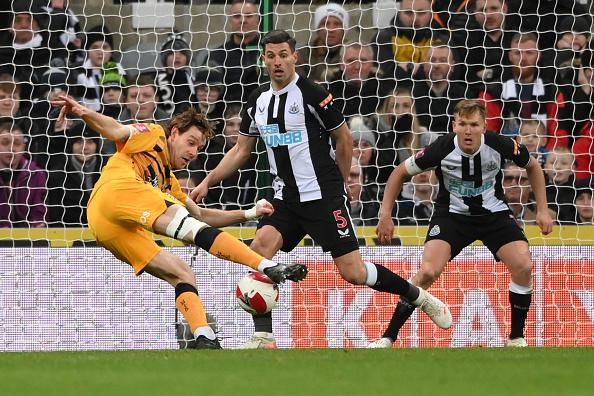Why Cambridge’s FA Cup triumph at Newcastle is good for football

Upsets were in abundance over FA Cup third round weekend, from sixth-tier Kidderminster Harriers beating Reading and Conference outfit Boreham Wood progressing for the first time.
There was drama galore elsewhere too, with Morecambe and Shrewsbury Town giving scares to Tottenham Hotspur and Liverpool respectively and Barrow eventually succumbing in a nine-goal thriller at Barnsley.
But the standout result of the round came at St James’ Park, where League One Cambridge United inflicted a deeply embarrassing 1-0 defeat on football’s newest would-be superpower, Newcastle United.
Losing to a team which needed loans to survive the pandemic is surely not what those pulling the levers at Saudi Arabia’s Public Investment Fund had in mind when it became majority owner of Newcastle three months ago.
Nor would they have envisaged their band of millionaires being sunk, primarily, by two lower league players who share a house: journeyman striker Joe Ironside, who idolised Magpies hero Alan Shearer as a child, and Bulgarian goalkeeper Dimitar Mitov, formerly of Canvey Island.
Newcastle’s defeat is about more than just schadenfreude. It is also, on a deeper level, good for football to remind all of its participants that money is no guarantee of success, or even merely avoiding FA Cup humiliation.
Unpredictability is the lifeblood of any sport. Lose it and interest in it will quickly die. This result was another reminder that winning football matches is not an easy business, even when you are run by a sovereign wealth fund whose assets total more than $400bn.
Newcastle are only just beginning to tap into that vast financial potential. England full-back Kieran Trippier became the first signing of the Saudi era last week and made his debut in Saturday’s cup tie.
But even if the effects of their spending spree are yet to be fully felt, the odds were overwhelmingly in favour of the Premier League side. That the minnows can win, partly because football is a low-scoring game, is part of the game’s appeal.
Giant killings are likely to become more and more rare as football becomes increasingly polarised between the haves and have-nots. That is already producing greater predictability in major leagues. All the more reason, then, to cherish these shocks.
It is only a few months since a cabal of the continent’s richest clubs turned their backs on the sporting model of open competition, exemplified best by the FA Cup, and attempted to set up their own closed European Super League.
Newcastle were nor part of the so-called “dirty dozen”, most of whom were forced into a swift climbdown when popular support proved absent, but if – perhaps inevitably, when – the plans are resurrected it seems only logical that they would expect to be.
There is nothing inherently wrong with some teams being rich, nor with some using their resources to buy more players than others. But when that becomes the only factor that determines success, something is lost.
Results like Cambridge’s victory at the weekend are a short, sharp reminder that, while the value of the FA Cup as a competition may be in terminal decline, some things still can’t simply be bought. And that is a good thing.
